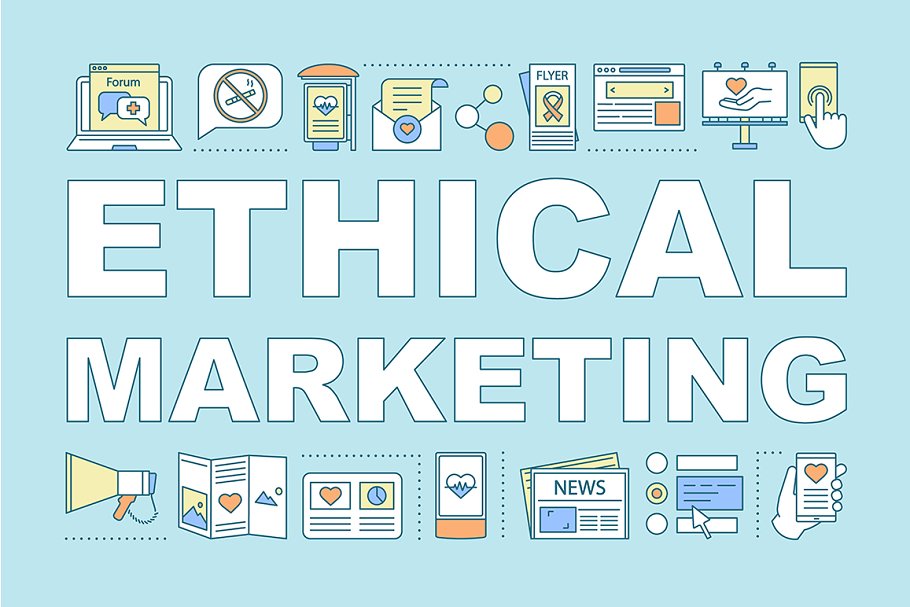8 Ethical Marketing Practices To Market Responsibly
Marketing can affect how people feel, act, and decide. However, it’s crucial to make sure that marketing strategies are moral and consistent with societal norms. To guarantee that their marketing initiatives are responsible and genuine, businesses should adhere to the eight ethical marketing best practices, according to our experts listed below.
Quick Links
1. Truthfulness:
Businesses should make sure that all marketing communications are correct, honest, and not deceptive. All assertions must be backed up by facts, and all pertinent information must be made public. This is being upfront about any limitations of a good or service and refraining from using inflated or fraudulent claims or figures. Companies can increase client trust and develop a solid image in the market by supporting honesty and openness in their marketing.
Jake Smith, Managing Director at Absolute Reg
2. Respect for privacy:
Companies should be open and honest about how they gather customer data and ask for permission before using it. Additionally, they must safeguard client data and refrain from disclosing it without authorization. Businesses should respect the right of customers to privacy by being open and transparent about how they use customer data. Customers will feel more trusted and credible as a result, and their personal information will be protected.
Timothy Allen, Sr. Corporate Investigator at Corporate Investigation Consulting
3. Fairness:
Marketing must not be biased against any individuals or groups and must not take advantage of weaker demographics like children or the elderly. Businesses should make sure that their marketing messages respect others, are not discriminating, and do not exploit weaker demographics. As a result, the market becomes more equitable, and inclusivity and equality are promoted.
Zephyr Chan, Founder of Living the Good Life
4. Responsibility:
Businesses should consider their goods and services’ social and environmental effects and work to uphold their obligations as good corporate citizens. This includes minimizing their environmental impact, being open about their business operations, and giving back to the neighborhood. Businesses can make a positive influence and gain the trust of their customers by accepting responsibility for their activities.
Nigel Clarke, a partner at AirExperiences
5. Transparency:
Businesses must be open about their operations and marketing strategies, including any use of influencer marketing or compensated endorsements. This promotes client trust and guarantees that they are aware of the marketing strategies used to promote goods or services. Companies should be open about their funding sources and any connections they may have with other companies.
Kim Leary, Creative Director at squibble
6. Relevance:
The customer experience should not be hampered by marketing communications that are not pertinent to the intended demographic. Additionally, businesses should respect client time by refraining from delivering pointless or unnecessary messages. This improves client satisfaction and guarantees that marketing initiatives are not perceived as intrusive or disruptive.
Adam Garcia, Owner of The Stock Dork
7. Authenticity:
Instead of fabricating bogus testimonials or reviews, businesses should concentrate on real client feedback. Additionally, they should refrain from making inflated or deceptive promises regarding their goods or services. Companies can increase client trust and develop credibility in the market by encouraging authenticity in their marketing.
Ethan Bull, Owner of ProAssisting
8. Social accountability:
Companies should be aware of how their marketing initiatives affect society and refrain from endorsing goods or services that are detrimental to the community. Avoiding the promotion of hazardous goods like tobacco or unhealthy diets as well as promoting goods with a positive social impact is part of this. Companies can have a good influence and gain the trust of their customers by incorporating social responsibility into their marketing.
Michael Lees, Chief Marketing Officer at EZLease
Companies can develop customer trust and maintain a solid reputation in the industry by adhering to these moral marketing best practices. In addition to helping businesses retain a favorable reputation, ethical marketing also fosters the development of a more equitable and sustainable market for all participants.
To sum up, marketing may be a potent instrument for businesses to connect with their target market and advertise their goods and services. However, it’s crucial to make sure that marketing strategies are moral, responsible, and consistent with societal norms. Companies can develop trust with their clients and establish a good reputation in the industry by adhering to the best practices mentioned above.
How to Use AI-Powered SEO Tools for WordPress eCommerce
SEO is a critical factor in the success of any e-commerce WordPress store. As competition…
0 Comments11 Minutes
Why Short-Form Videos Are the Future of Content Marketing
Your Instagram customers spend over 50% of their time watching short-form videos and reels. Rather…
0 Comments12 Minutes
The Role of Digital Marketing in Business Growth
Online marketing touches every aspect of a business, whether it is initiating the idea or for an…
0 Comments3 Minutes
AI Meets Authenticity: Balancing Automation and Human Touch in Content Marketing
Is your brand starting to sound like a robot? In a world where algorithms write faster than any…
0 Comments8 Minutes
Essential Tools for Enhancing Web Design and UX Hosting
Have you ever visited a website that felt slow, clunky, or confusing? A website that is poorly…
0 Comments11 Minutes
How a Mini Cart Transformed My Store’s Shopping Experience
Okay, real talk—running an online store is hard. You think you’ve got everything figured out, you…
0 Comments9 Minutes
Balancing Your Security Initiatives With Industry Compliance Requirements
Managing a business today comes with a number of daily battles that need to be fought. Resources…
0 Comments11 Minutes
Best plugins to enhance the customer shopping experience
Customer experience is a key part of every online store. A good experience helps customers find…
0 Comments7 Minutes








